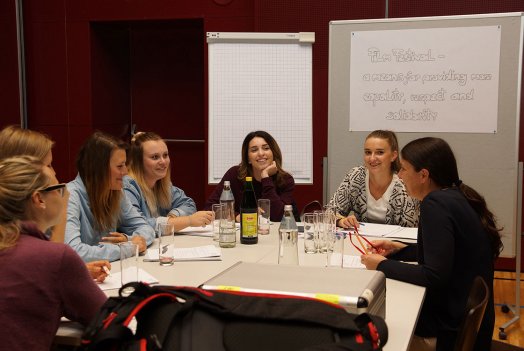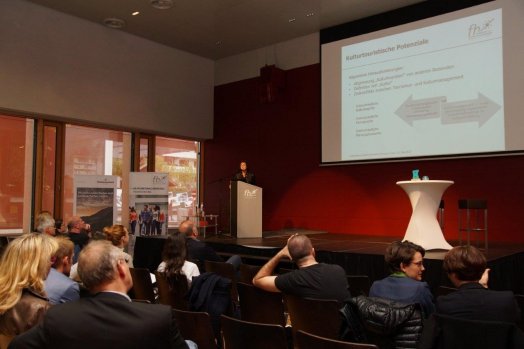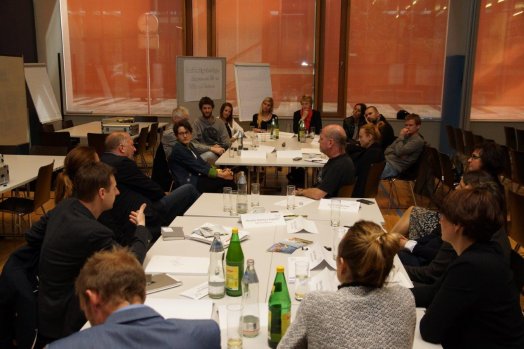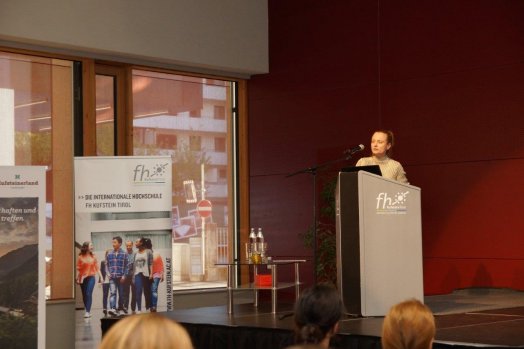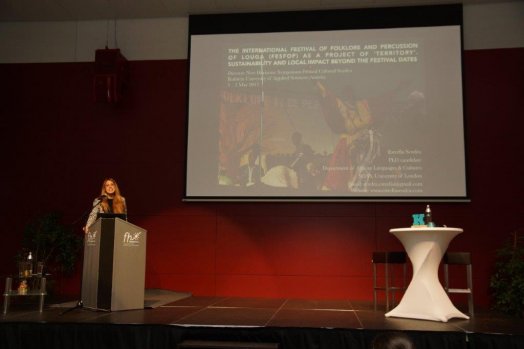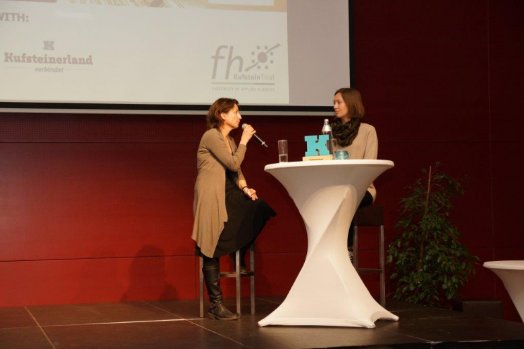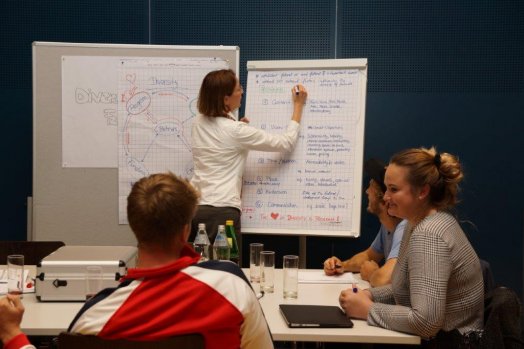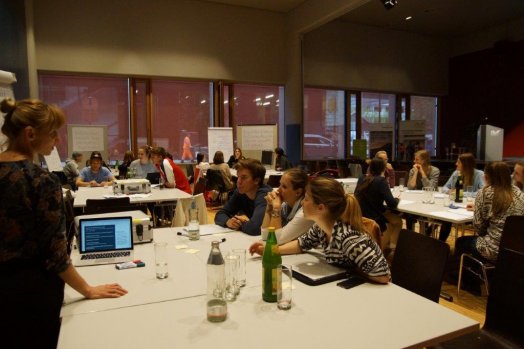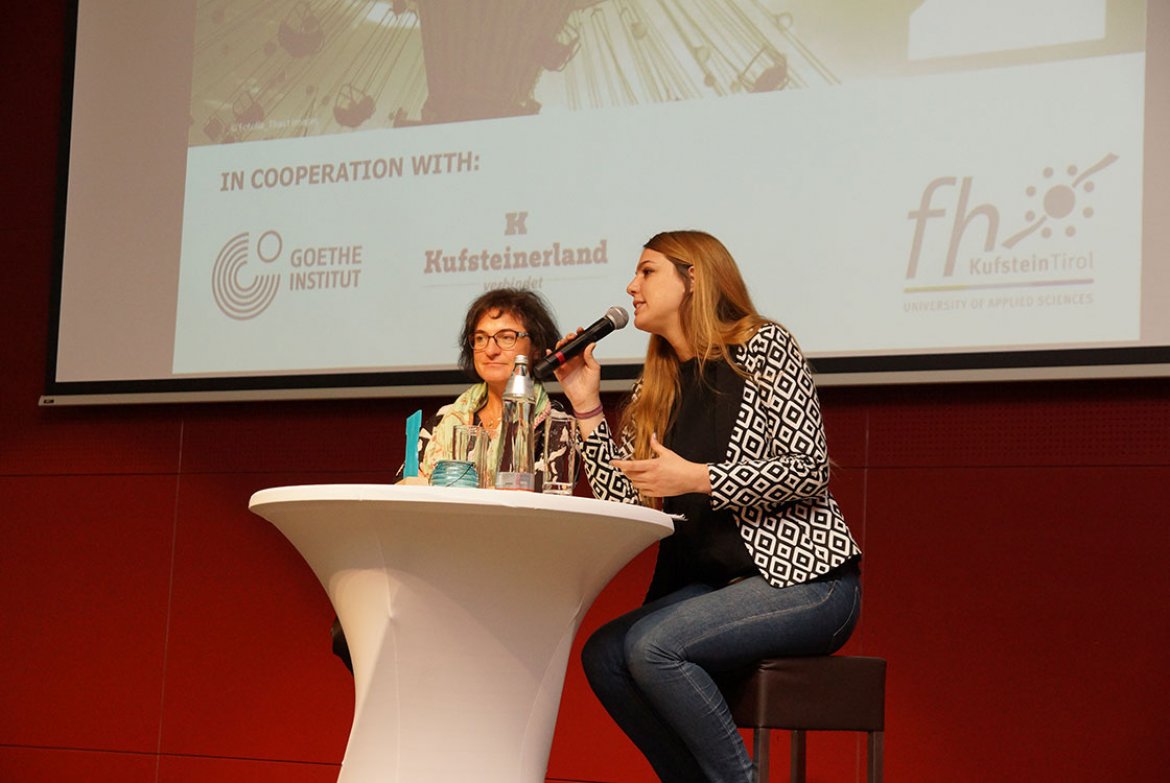
Spotlight on festivals: a symposium on sustainability in the arts and culture
Organizing festivals always requires striking the right balance between demand and supply as well as stakeholders' interests. In her opening speech, Elisabeth Mayerhofer, Cultural Political Advisor to the City Councilor of Cultural Affairs, explained how popular festivals are as a platform for culture, tourism, the arts and people. She called for a balanced and sustainable approach to do justice to different interests.
Sustainability beyond the festival
Stephanie Weigel, Director of Sustainability Management at Tollwood Festival in Munich, discussed the potential that popular festivals have to raise awareness for environmental and social issues. Without public funding, Tollwood has become more than a festival and is considered a stakeholder for sustainability. It has launched initiatives on issues such as animal welfare standards and the availability of organic produce in public institutions. One of the cornerstones of the success of these events is credibility. Estrella Sendra Fernandez from SOAS University in London reached the same conclusion after presenting the results of her fieldwork, which focused on the FESFOP folklore and percussion festival in Louga, Senegal. Involving the general public, this event makes regional and national traditional arts available in an innovative way. Just like the Tollwood festival, FESFOP promotes initiatives all-year round in order to raise awareness for sustainability issues.
According to Tanja C. Krainhöfer and Szilvia Nagy, the organizers of festivals do not always maximize the potential to promote culture. The media economist explained that the program of the largest and oldest German film festival, the Berlinale, only partly reflects Germany's inter-cultural society. Szilvia Nagy is co-founder of the platform Locop and has studied the role that alternative cultural operators play in promoting sustainability in European Capitals of Culture. Participation poses a particular challenge in countries with former communist governments. Furthermore, the conduct of some Capitals of Culture officials can also lead to conflict between segments of civil society and high culture.
An important contribution to a young discipline
"As opposed to museums, doing research about festivals, their characteristics and responsibility is something rather new. Yet they have given rise to social change and democratic processes already since the 1950s. This includes sustainability and its wide range of related topics such as environmental awareness and cultural development. Case studies outline different approaches. The aim of the symposium is to shed light on them, thus contributing to the theoretical discourse," said Symposium Director Prof. (FH) Dr. Verena Teissl, summarizing her intentions. In order to allow for a more comprehensive discussion of festival management, the platform Kulturmanagement Net has launched a series of publications about different perspectives.
The symposium was organized by members of the FH Kufstein Tirol study program Sports, Culture & Event Management in partnership with Goethe-Institut and the Kufsteinerland tourism office. Together with the latter, the Future Lab "Festival tourism in Tyrol: discovering potential together" was organized as a side event of the symposium. It attracted about 25 participants from the fields of tourism and culture. Mariella Klement-Kapeller and Robert Gröblacher from the Austrian National Tourist Office and Alexander Erler, initiator of the multiple award-winning green event Wiesenrock Festival, provided valuable insights into how cross-sectoral dialog can be strengthened, how similar festivals can cooperate to achieve better (international) promotion results, and how to promote and entrench environmental sustainability as a mainstream topic.
Another building block of the program was the event Kultur.Mut. Thanks to the initiative of students of the Sports, Culture & Event Management program, the Science Busters, a group of scientific cabaret artists, performed in Kufstein for the first time. The science behind Game of Thrones entertained an audience of about 160 people.
Kultur.Mut | Locop | Studien zu Filmfestivals in Deutschland | Wiesenrock | Goethe-Institut | Kufsteinerland | Kulturmanagement Net

